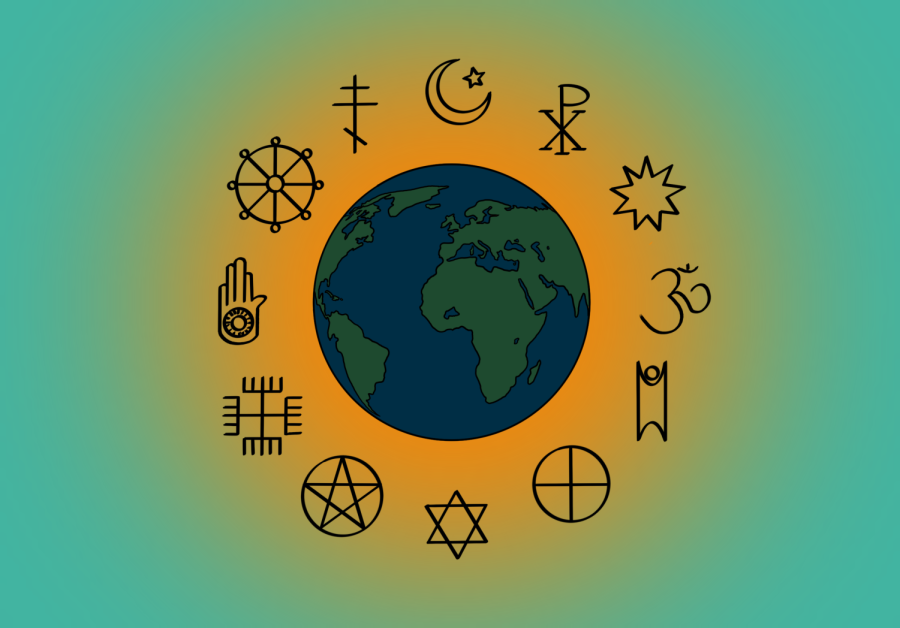What is religion?
There are certain entities that obviously seem like religions. Christianity or Islam, for example. But we don’t need to leave the pantheon of major world religions before things start getting controversial. Buddhism, for instance, is sometimes said to not be a religion at all.
And what about secular things that inspire quasi-religious devotion? Like college football teams or political candidates.
Maybe we’re stuck defining religion the same way Supreme Court Justice Potter Stewart defined hardcore pornography: “I know it when I see it.”
The difficulty of this task is belied by the sheer number of scholars who have attempted it. The quantity of definitions of religion is vast.
Jeanne Kilde, a professor of religious studies at the University of Minnesota, studies religious spaces like churches, mosques and synagogues. In her own work, she prefers to use a “constructivist” definition of religion.
“People construct religion. They create it,” she said. “In terms of space, your question is: Do they sacralize space? How do they sacralize their space? How do they make it sacred?”
Evan Stewart, a University alum, is a sociologist at the University of Massachusetts. He said sociologists often think about religion through the “three Bs”: belief, behavior and belonging.
However, this framework doesn’t always apply in the same way. “Some religions emphasize one of the Bs more than the other,” Stewart said. “From the outside perspective of somebody who’s just generally interested in religion, it can really appear like there’s not a consistent definition, where the field is really focusing on different parts of the religious experience.”
Jacqui Frost, another University alum, is a sociologist at Purdue University. Among other things, she studies secular congregations like Sunday Assembly. She said some scholars think of religion as just one type of “existential cultures.”
“Religion and non-religion are both ways of making meaning in the world and answering existential questions,” Frost said.
Frost said she and Penny Edgell are “trying to bring the three Bs to bear on the non-religious. What practices are the non-religious doing?”
Sungha Yun is a professor of religion and Asian studies at St. Olaf College. She is also a Won Buddhist kyomu, or ordained priest. She pointed out that the concept of “religion” varies across cultures and is often tied up with politics. She said the idea of “religion” is often defined in a Western-centric way.
There are multiple faiths in Korea, including Won Buddhism, which are sometimes referred to as “new religions.”
“The concept of ‘new religion’ actually derived from the concept of ‘pseudo-religion’ that was coined by the Japanese colonial government,” Yun said. “The Japanese colonial government actually divided religion into two groups. Basically, the authorized, sanctioned group, and the other — it’s not authorized by the government.”
I asked Kilde whether it even matters if we have a single, consistent definition of religion. “No, not really,” she said. “It’s always defined, it’s always considered from the positionality of the person who’s using it.”
“The more folks study it,” Stewart said, “the more they understand the idea that religion happens in many different ways.”



















